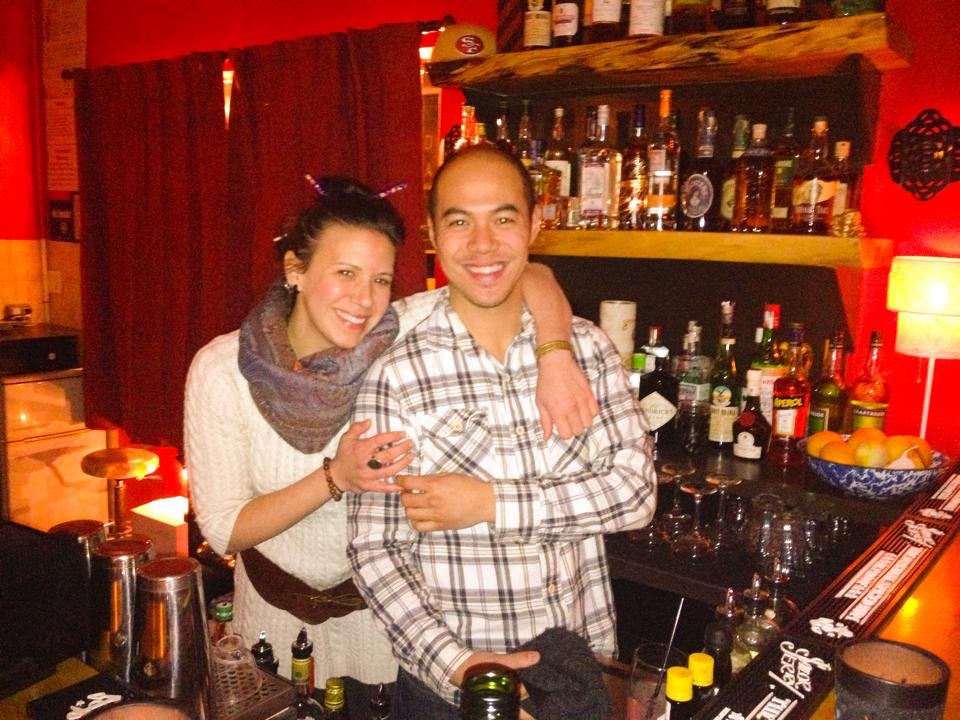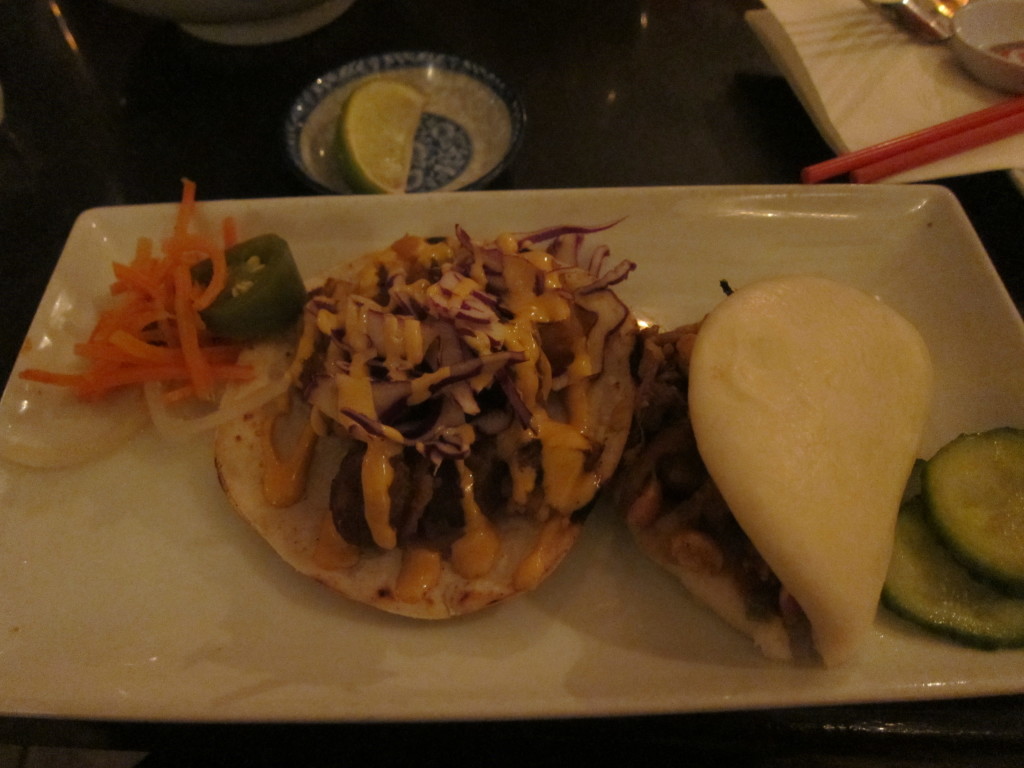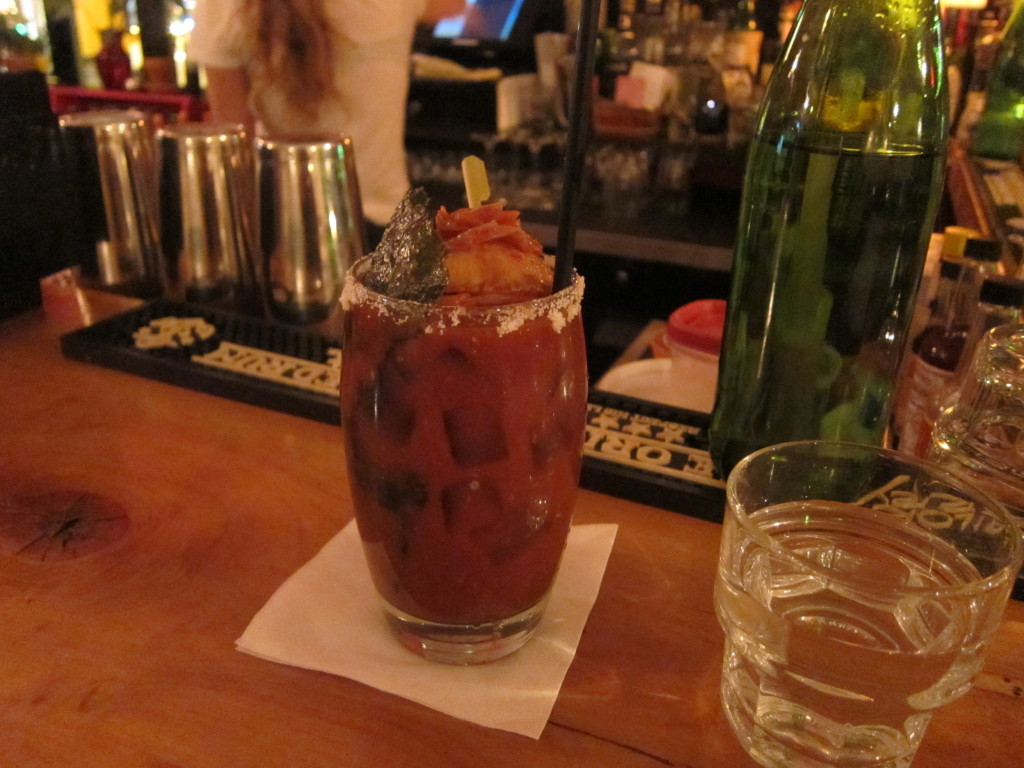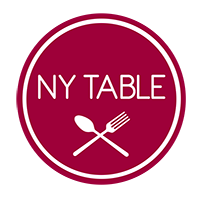Lucky Luna is the name that Marisa Cadenas and Ken Ho have chosen for their Mexican-Taiwanese restaurant in the Greenpoint area of Brooklyn — Lucky because it is an important concept in traditional Chinese culture, and Luna, the moon, in Spanish, because for Marisa it is a symbol of energy and balance. Lucky Luna joins two cultures from halfway around the world through two people who have found their point of intersection: Love of food and a life devoted to sharing it.

Ken Ho and Marisa Cadenas at Lucky Luna. Photo: Gema Flores.
Ken is the son of Taiwanese immigrants who moved to California in 1982, the year he was born, and worked in restaurants until they opened a traditional Taiwanese place of their own in the mid-1990s, in Berkeley. Ken grew up watching his parents run the business and in middle school, he started to help them. Although his parents hoped that he would find a different profession, perhaps as a doctor, Ken worked in several kitchens and bars on both coasts before he and Marisa opened Lucky Luna. “To see your parents run a restaurant helps to follow the same path because you see first hand how it is, and know what to expect,” says Ken.
Marisa, who is 35 years old, is the granddaughter of Mexican immigrants who settled in Michigan, where she grew up. Her childhood memories are of her grandmother preparing tortillas and frijoles, and she started working in restaurants when she was 14 and got a dishwasher’s job at an Italian restaurant. Four years later, driven by the desire to know more about her family culture, she moved to Oaxaca, where she spent six years working in restaurants and bars, as well as organizing art exhibits and workshops. It was there that she discovered her desire to collaborate with artists; she pictured herself as a curator.
Ken and Marisa met 10 years ago at Palomino, a popular happy-hour spot in San Francisco, and quickly realized that they shared the same sense of hospitality and love for people. Once they started to live together, they saw similarities in what they like to cook, as well. When Marisa feels cold or is homesick, she prepares pozole, and Ken cooks ramen, both meat-based broths seasoned with fresh vegetables. If a friend asks Marisa what a bao is, she refers to the Chinese filled bun as a Taiwanese taco.
Five years ago they moved to New York because Marisa wanted to pursue a master’s degree in Latin American and Caribbean studies at NYU. The couple soon began dreaming of their own venture, while they worked in restaurants to save money. When a fellowship enabled Marisa to invest money she originally had saved for school, they decided it was time: With $28,000 from a Kickstarter campaign, they had enough to open a restaurant of their own.

Pork belly taco and peking duck confit bao. Photo: Gema Flores.
They wanted to open a neighborhood spot in an area with not many Mexican or Chinese restaurants, and they decided that Greenpoint was the place. The mix of multi-generational families from Poland and an influx of new residents seemed like good potential customers. “A quantity of restaurants has been here for many years, and new residents, as well as second-generation Polish, demand more food choices,” says Marisa. “Our concept is something unique in this area — or rather, there is not a large concentration of Taiwanese, Chinese and Mexican offerings”
Rents were out of their range on Manhattan Avenue, the main business street in Greenpoint, but they were able to take over a Nassau Avenue space previously occupied by Basia, a Polish restaurant that had closed its doors. They signed a 10-year lease.
The Kickstarter campaign brought them an immediate clientele, in addition to funds. “Kickstarter helped us make people know about our restaurant, while the funds raised helped us open the doors,” explains Marisa. The barstools bear placards etched with the names of the major donors as well as those who contributed emotional support.
Marisa and Ken remodeled the place with the help of friends, and opened their business in January, 2014. Lucky Luna reflects their heritage – signs written in Spanish and Asian objects cover the walls, along with artwork that Marisa selects to exhibit. The cutlery is also a mix of cultures; it includes a fork, Asian soup spoon, and chopsticks.
Ken is in charge of the crew of four working in the kitchen, while he and Marisa decide together what should be on the menu — traditional Mexican and Taiwanese food with influences from South and Central America and greater Asia. Their Taiwanese-style steamed buns include duck confit on a bun slathered with hoisin mayo, and scattered with crispy Mexican chicharrones; a duo of tacos includes pork belly and kimchi, which is Korean pickled cabbage, as well as a slow-simmered chicken mole. Entrees include Taiwanese beef noodle soup and pozole, which also come in a vegetarian option.

Kimchee and Nori Bloody Mary. Photo: Gema Flores.
Ken likes to follow recipes, and when he doesn’t remember how to cook a dish he calls his parents. Marisa, guided by her artistic spirit, is the one who breaks the rules, often with new cocktails. One of those, the Kimchi and Nori Bloody Mary, received an award for originality two years ago at the Annual Brooklyn Bloody Mary Festival.
Lucky Luna is not only a place to eat and drink but a place to meet others, to see art, watch movies, listen to poetry, laugh at a comedy show, and enjoy live music. On Mondays, the restaurant hosts events to support local and student artists, writers, chefs and small business owners, and the couple make the space available for art exhibitions and receptions. They feel they belong to the community: When an apartment a block away burned down on Valentine’s Day, Marisa and Ken organized a happy hour to donate money, clothes, furniture and anything else that could help the residents. They live six blocks away from the restaurant, and have befriended other small business owners. “When we get together we speak about business issues but also about things that happen in the neighborhood,” says Marisa. They have found their space in a diverse community that feels like home for both of them.
Tags: Brooklyn, greenpoint, lucky luna, Mexican, taiwanese
Your Comments